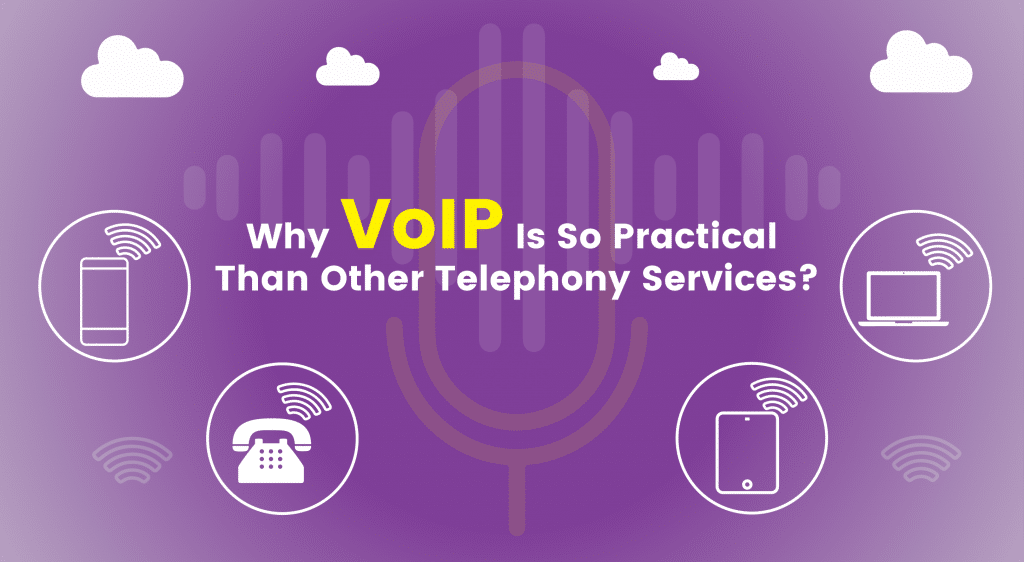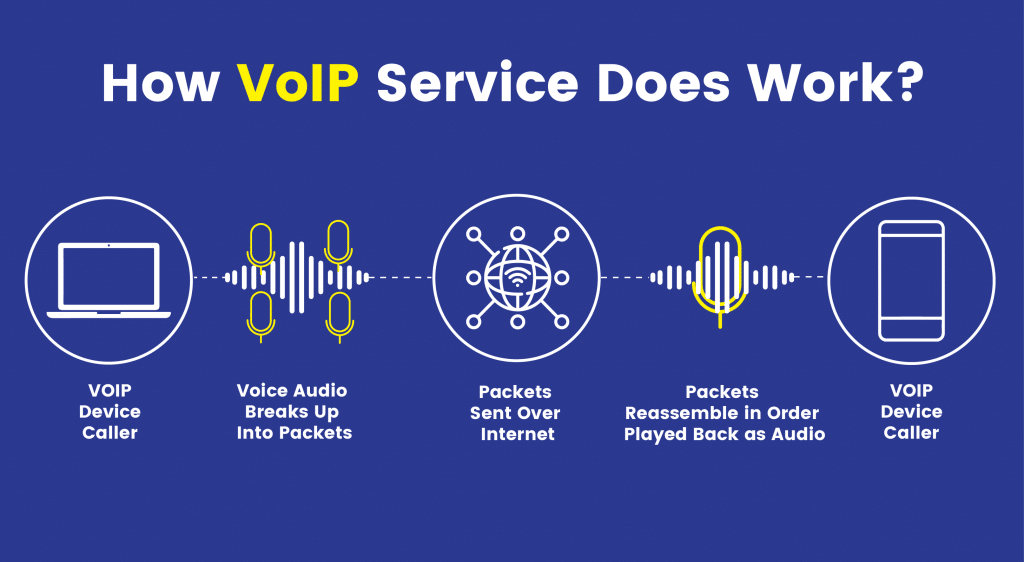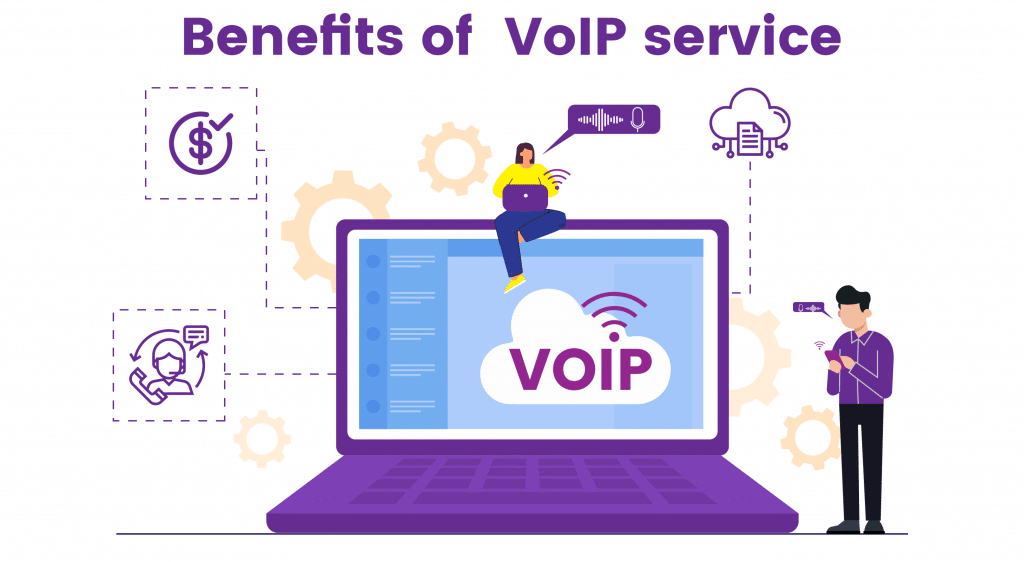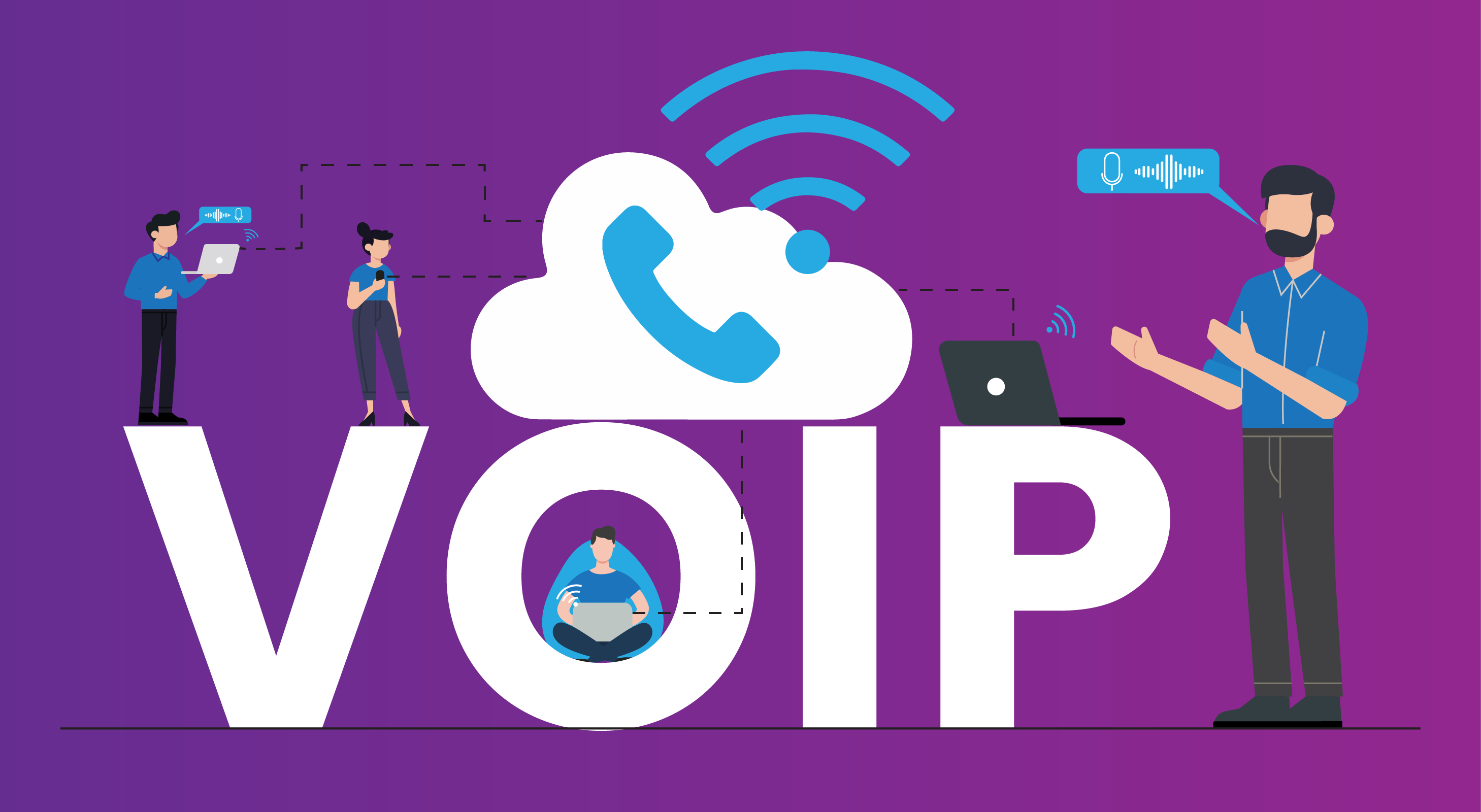Every valuable interaction requires a calling support that can personalize your work and enlarge your productivity. Calling communication is the service that makes your performance available from any location to any site. And for calling purposes, VoIP (Voice Over Internet Protocol) is the most significant using telephony service.
As a research 40% of businesses use only VoIP telephone service and 60% use a mixture of VoIp and other available calling services. The Voice Over Internet Protocol telephone service is the most applied service since it has a very effective cost and a wide range of use. So, let’s move ahead and get to know VoIP’s quintessences.
What is VoIP?
VoIP or Voice Over Internet Protocol is a technology that is used to deliver voice communication media over Internet Protocol networks such as the Internet. This technology assists you in making & receiving calls using technology like broadband phone service, internet telephony, broadband telephony, and other connection.
VoIP telephony is a cost-effective technology and a capable method that helps you in managing an infinite number of calls without using local phone services. In the Voice Over Internet service, the transmission network or network is private and based on an Internet protocol network. Basically, VoIP converts your voice data into signals and transfers it across multiple networks over the internet.
Why VoIP is so practical than other telephony services?
The Voice Over Internet Protocol calls are possible to make at any location as it needs an internet connection only. But in terms of landline calls, you are completely unable as that needs the copper wires so you are restricted with a limited geographical area. As a result, VoIP monitoring can operate calls much better than landline calls.

Virtual phone systems and VoIP call services are better than traditional telephone calls. Unlike traditional phones that rely on the Public Switched Telephone Network (PSTN), virtual systems work well for remote organizations by allowing communication across various devices
Voice Over Internet Protocol services are cheaper than all other telephony systems and also do not require any additional effort. Not only but also the VoIP services can be integrated with other software with flexibility. And also, VoIP systems have mobile twinning features like cloud-based VoIP have the capability to connect remotely to mobile devices & PC by using another application & share information.
How Does (Voice Over Internet Protocol) VoIP Work?
Generally, Voice Over Internet Protocol telephony has a little bit wide concept for physical performance but in theory, the working procedure will end within four steps only. So, let’s understand the VoIP telephony service in a nutshell.
- First when a caller dials a number then the call is forwarded to a router.
- After that, the router forward this call over the internet connection and then it reaches the VoIP service server.
- Later, the call will be transferred to the recipient router’s end using the local internet.
- And finally, the call will be getting attached to the Internet Protocol device of the recipient.
How Voice Process of VoIP Service Does Work?

The VoIP telephony service converts the voice into digital signals and then those signals pass through the internet in the form of packets. In the case of a regular phone call the signal is transmitted to the regular telephone signals and lastly hit the destination point.
If you are using the Voice Over Internet Protocol service then you can make a call by a direct route of your system. Additionally, from a VoIP telephone or an adapter-connected traditional telephone. Also, you are allowed to make your call from a wireless connection (hotspot) that you get from the airport, metro station, and other locations.
Generally, the Voice Over Internet Protocol Voice process works in two ways depending on whether the voice is forwarding from the phone or the desktop. So, here you can understand the working procedure of voice communication of VoIP service.
Personal computer (sender) > a qualified modem > Internet > Personal computer (receiver)
Or
Telephone (sender) > Phone adapter > Internet connection > Telephone (receiver).
What is the difference between SIP, IP Phone, and Volte in reference to VoIP?
As there’re multi kinds of telephony systems & other related services are available so, here you’ll get to know the difference among all the mentioned services.
- VoIP vs SIP
Where Voice Over Internet Protocol technology allows you to make and receive calls over the internet network, SIP allows you to facilitate multiple VoIP calls. The SIP makes call communication flowless and instant and transfers your entire voice information to and from your device.
In general, Voice Over Internet Protocol and SIP are just alike as they both transfer voice data to and from devices over the Internet but deep down they are not. Because the VoIP system can operate without the SIP as it has to transfer the voice data but for using multimedia communication you need SIP technology.
- VoIP vs IP Phone
VoIP is used for the delivery of only voice communication to or from devices over the internet while IP is used to transfer entire communication. It does include all kinds of communication whether it is a voice call, video call, fax, voicemail, & other telephony-related services.
Internet Protocol telephony uses the IP’s packet-switched connections through which, information consistently travels over strong connections like circuit switches and PSTN (public service telephony network). As IP Phones can cover large data communications so, here you need to choose the IP Phone but only for voice calls, Voice Over Internet Protocol is great.
- VoIP vs Volte
VoIP telephony uses broadband technology for transmitting communication data but the Volte or Voice Over Long Term Evolution has used mobile & 3G/4G data connection. As Volte technology works on GSM/cellular data connection so you need a SIM card to operate it
If your business has mobiles and tablets only then you can use the Volte or Voice Over Long Term Evolution. On the other hand, if your business has desk phones and PCs in your offices then you can only operate Voice Over Internet Protocol telephony. If you are running a business then you must move toward the VoIP telephony service.
What equipments are required for a VoIP call?
For making Voice Over Internet Protocol or VoIP calls from a device (laptop, desktop, smartphone) you’re using, you must have downloaded calling software in it. Another from this, you must have a modem and a router that are a part of your internet setup.
VoIP calls only would be possible to make with a VoIP desktop phone since these devices can work with IP technologies. These are familiar with the business environment as they do not let you wait for calling & also allow you to make conference calls.
The other equipment that you are required for a Voice Over Internet Protocol is a VoIP Headset. The VoIP Headset allows employees to make or receive Voice Over Internet Protocol calls more easily as they don’t need to hold the phone for long period. Also, don’t need to rely on the audio they are getting from their device & lastly they can work on their other urgent work while making the calls.
What are the benefits of using a VoIP service?
The VoIP telephony service saves you from the cost of PBX (Private Branch Exchange). For using a Voice Over Internet Protocol telephony service, you don’t need to use a PBX as it is required only in landline telephone service, not in VoIP.

In VoIP telephone service you also need to send the cost of Copper Wires since in VoIP you do not need to use copper wires for the connection. Instead, you just need an internet connection to make the calls.
The VoIP also saves you from investing in other functions of calling expenses like (Public Switched Telephone Networks) PSTN, and Traditional Circuit Switched telephone networks. A large number of people have saved 60% of phone bills locally or 90% internationally by switching to VoIP services.
As VoIP is a telephony service that can be used for business purposes & domestic purposes & by anybody whether it is an individual or the entire team. VoIP is so practical for use as it is cost friendly that can match your budget by saving you from many direct expenses & helping you in saving indirectly.
The Voice Over Internet Protocol service also saves you from ongoing expenses like tax, repair, maintenance fees, etc as other telephone services do charge. Instead of ongoing expenses, it does charge for a subscription plan that would take hardly $5 per month per user.
The Voice Over Internet Protocol service allows you to do remote work and save a huge amount of money and increase your productivity. You can perform duties like a conference call, instant video call, auto-attendant, call waiting, etc., and save approximately $11,000 per person per year.
Voice Over Internet Protocol provides you with some add-on features without any additional cost. Just like other telephone services in VoIP service, you get functionalities like call transfer, call queuing, group ringing, etc without paying extra charges.
As most people have to travel a lot whether it is for business meetings or deals purposes & for other work, VoIP is also capable to serve them. Just because Voice Over Internet Protocol is fully portable so you can simply carry it with you wherever you are going.
Conclusion
As you all know that Voice Over Internet Protocol telephony service is the best solution that can serve you better than all other telephony services. On the conditions of some facts, many times you got stuck in a confused mixture like what special does it provide? What are its usage, required equipment, benefits, cost, working process, etc? Right! So, in this article, you will know the response to all the mentioned queries for the telephone service in a simple manner.








